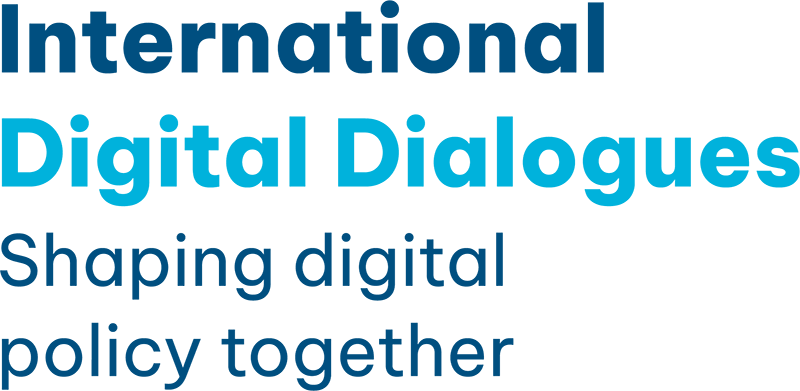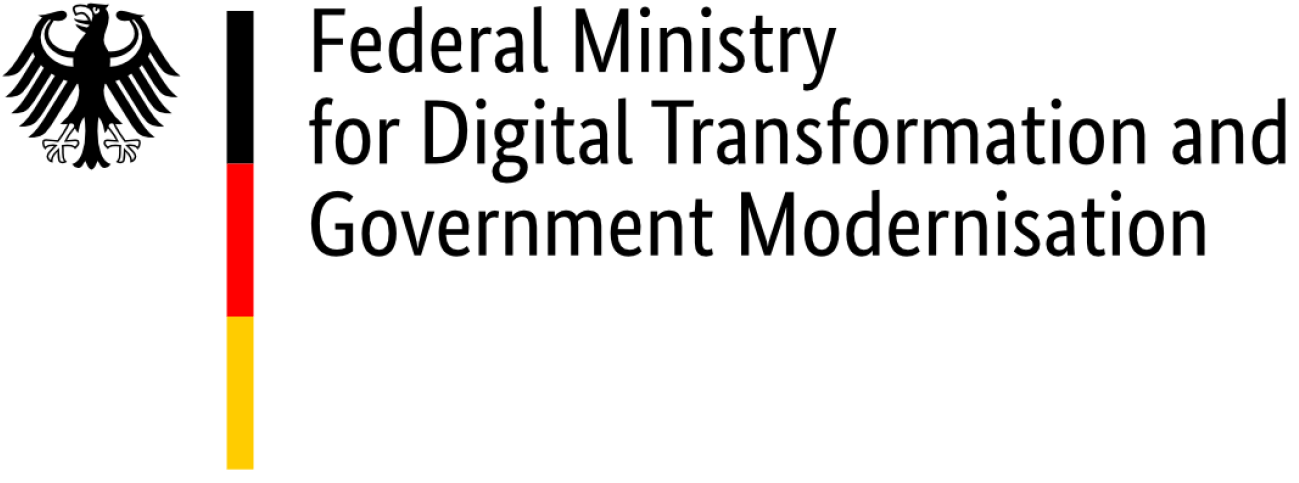16th German Digital Summit: International panel on digital sovereignty
General

BMDV welcomed renowned guests from the public and private sector to discuss the challenges and priorities in strengthening digital sovereignty: Stefan Schnorr, State Secretary at the German Federal Ministry for Digital and Transport (BMDV); Eliud Owalo, Cabinet Secretary at the Kenyan Ministry for Information, Communications and The Digital Economy; Dr Francisco Gaetani, Extraordinary State Secretary for State Transformation at the Brazilian Ministry for Management and Innovation; Dr Marianne Janik, CEO of Microsoft Germany; and Paul de Bot, General Manager Europe, Middle East, Africa (EMEA) of the Taiwan Semiconductor Manufacturing Company (TSMC).
The speakers effectively demonstrated how choice and skills, cooperation with like-minded partners and the impact of regulatory frameworks are significant and interconnected elements in the global discourse on digital sovereignty.
Control and skills enabling sovereign choice
In defining digital sovereignty, the panellists pointed out that digital knowledge as well as the control over one’s own data are central aspects and the individual basis of digital sovereignty. Investing in human resources, especially in youth and digital skills are areas that all speakers agreed on as crucial in becoming digitally sovereign. The private sector plays a pivotal role in this effort. TSMC, for example, plans to partner with universities to develop skills and knowledge necessary for the industry, while Microsoft offers online courses on digital matters.
To strengthen data sovereignty, Brazil sees a strong role of public enterprises to roll out digitalisation programmes while Germany is pursuing an approach of collaboration with private partners to develop the necessary technologies.
Cooperation with like-minded partners
The panellists also stated that being sovereign does not mean striving for isolation and self-sufficiency. On the contrary, it requires cooperation with like-minded partners, both between nation-states and between governments and the private sector. The room for independent choices of technologies, regulatory approaches, digital solutions and the means to produce and acquire these can only be enlarged through cooperation and technical harmonization.
Minister Owalo gave the example of the Smart Africa Alliance that is working towards a single digital market on the African continent by involving strategic partners from businesses and states. State Secretary Schnorr introduced BMDV’s International Digital Dialogues, a multi-stakeholder platform that facilitates bilateral exchange and partnerships on digital policy topics with partner countries such as Brazil and Kenya.
The panellists also underlined that during periods marked by uncertainty, it is crucial to enhance geographical flexibility in order to tap into different markets and resources. TSMC’s planned semiconductor factory in Dresden is an example of a public-private cooperation that is vital for the tech landscape in Europe.
Regulation and innovation
Lastly, the speakers highlighted the importance of establishing rules for emerging technologies and data use. Ms Janik stressed that common rules are necessary to establish a clear framework, particularly for the secure application of AI. The speakers concurred that a framework of guidelines for the use of data and technologies enables stakeholders to maintain sovereignty over their resources while at the same time facilitating partnerships through harmonisation.
The panel closed with a discussion round in which the audience voiced their questions. In the end, the panellists agreed that digital sovereignty is a complex and important topic that can only be achieved by working together across countries and sectors.
More interesting news

General
Strengthening the economy, deepening partnerships: Exchange with the German business community
The German Federal Ministry for Digital Transformation and Government Modernisation (BMDS) and the European Commission hosted a joint event in Berlin on 28 November 2025. The event offered representatives of German and European companies as well as industry associations the opportunity to learn more about the EU's Tech Business Offer and the International Digital Dialogues pursued by BMDS. Both instruments are important platforms for supporting digital economy cooperation projects and strengthening dialogue on key digital policy issues with international partners.

General
Satellite event at the AsiaBerlin summit 2025: Insights on the EU Tech Business Offer
On 27 November, the German Federal Ministry for Digitalisation and Government Modernisation (BMDS) hosted a satellite event at the AsiaBerlin summit for Asian companies. The event, for the first time ever, gave attendees the chance to ask questions directly to the European Commission on the recently launched EU Tech Business Offer. It also equipped the guests with practical information on the opportunities provided through the EU Tech Business Offer and the International Digital Dialogues.
Read more … Satellite event at the AsiaBerlin summit 2025: Insights on the EU Tech Business Offer

General
Stakeholder Consultation 2025 for the International Digital Dialogues
Less than two weeks after the German Bundestag elections, the Federal Ministry for Digital and Transport (BMDV) hosted a stakeholder consultation for the International Digital Dialogues. With this instrument, BMDV proactively seeks feedback and input for its exchanges with partner governments of the Digital Dialogues as well as for the ongoing discussions that will shape the new German government’s digital policy agenda.
Read more … Stakeholder Consultation 2025 for the International Digital Dialogues
Newsletter
Stay informed! To subscribe to the Digital Dialogues newsletter, enter your e-mail address here. Please also refer to our privacy notice.


